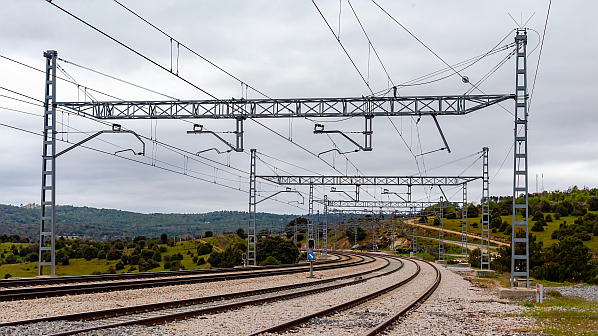SPAIN’s National Commission of Markets and Competition (CNMC) has imposed fines totalling €127.3m on Alstom, Bombardier, CAF Signalling, Cobra, Nokia, Siemens Rail, Siemens SA, and Thales, while 10 of their executives have been fined €483,000, for their participation in a cartel.
Cobra was fined €30m, Nokia €24m, Alstom €22m, Siemens Rail €18.9m, Thales €17.02m, Siemens S.A €10m, Bombardier €3.686m and CAF Signalling €1.73m.
Three directors were fined €60,000, one €54,000, one €53,000, one €50,000, one €43,000, one €41,000, one €34,000 and one €28,000.
Information provided by Siemens Rail and Siemens SA and its director Mr Gonzalo Martinez Delgado, resulted in a 50% reduction in their respective fines, meaning Siemens Rail must pay €9.45m, Siemens SA €5m and Delgado €17,000.
The CNMC says the companies created a cartel that fraudulently distributed at least 82 tenders from the Ministry of Development, the former Railway Infrastructure Manager (GIF) and later, from current infrastructure manager Adif, between 2002 and 2017 for the construction, execution of works, supply, installation, commissioning and maintenance of the security and communications of the Spanish high-speed (AVE) and the conventional networks.
During the 15-year period from 2002 to 2017 the companies won contracts worth €4.142bn. In some cases these last until 2035, 2037, 2038 and 2040. The CNMC says this had an impact on the treasury since the companies increased the price GIF, and later Adif, paid for this type of contract.
CNMC says the dismantling of several cartels in 2019 (surrounding railway electrification and electrochemical equipment) prompted these sanctions. At that point, the CNMC imposed 15 companies with €118m in fines for forming cartels that distributed public tenders for the electrification of the AVE and conventional Spanish networks.
Information collected during that investigation, especially during inspections of some companies, alerted the CNMC to the possibility of anti-competitive practices that would affect tenders called for security, signalling and communications facilities.
CNMC inspected Thales’ headquarters in May 2017, and, following the leniency request presented by Siemens in June 2017, it also inspected the Bombardier and CAF signalling headquarters in December 2017.
CNMC says the cartel arose in 2002 at the initiative of the two main companies in the market at the time, Alcatel (which was bought by Thales in 2007) and Dimetronic (which was included as part of Siemens’ acquisition of Invensys Rail in 2013). The aim was not to compete but divide the tenders through the constitution of a Temporary Union of Companies.
Both companies shared the amounts awarded which, in the initial agreement was set at 50-50% but later adjusted to 55-45%, and also the signalling technology used. In this way they were able to introduce their technological systems in the tenders won by 50% and the maintenance contracts (and subsequent renewals) were also guaranteed. Siemens SA joined the cartel in 2003, NSN (now Nokia) in 2007 and Cobra in 2008.
As new companies entered the market, and with Adif introducing changes in 2011, the evaluation of the economic component of the tenders favoured presentation of offers with more competitive prices. However, CNMC says that instead of maintaining competitive tension, previously competing companies agreed to establish distribution quotas on tenders and joined the cartel. Alstom and Bombardier joined in 2014, and CAF Signalling in 2015.
The CNMC says there is no administrative appeal against this resolution and a contentious administrative appeal may be filed at the National High Court within two months from the day following its notification.
According to Reuters, Siemens said it supported the CNMC probe and took appropriate organisational and personnel measures before the fines were announced. “Siemens has zero tolerance for corruption,” the company said in a statement.
A Nokia spokesperson told Reuters that the company fully cooperated with the CNMC's investigation and believes it acted lawfully.
“We are going to appeal the decision and request suspension of all sanctions pending the appeal,” the spokesperson said.

